Religious
Almajiri: Punish those allowing children roaming the streets – MURIC
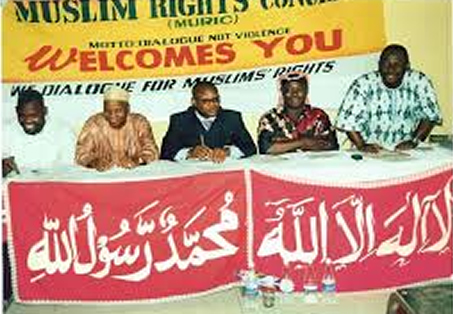
The Muslim Rights Concern (MURIC) on Monday called on the upper and lower legislative Chambers to come up with laws that would criminalise child abandonment by parents in Nigeria.
The MURIC director, Prof. adsbygoogle || []).push({});
Ishaq Akintola, in a statement issued in Lagos, said parents should be accountable and responsible enough in the training of their children so as to reduce incidents of child neglect.“We are worried about the large number of children roaming the streets. These are the leaders of tomorrow.
“Our children are our strength but that is only if we give them proper upbringing through a balanced education otherwise they become a sword of Damocles hanging above our heads.
He said parents are under compulsion to educate their children.
“The Glorious Qur’an chapter 2 verse 233 charges parents (particularly fathers) to provide the basic necessities of life including food, accommodation and clothing,” he said
“It is therefore a gross dereliction of parental responsibility to send children to the streets to beg, hawk or engage in any form of child labour.
“There is also the eschatological correlate in the issue of child bearing. Allah is going to ask parents how well they take care of their children,” he said.
He said it was sad to note that the permission to marry more than one wife which was contained in Qur’an chapter 4 verse 3 was often abused and misunderstood.
“Men ignore the provision contained in the same verse that marrying more than one wife is only permitted if he has the ability to provide adequately for the extra wives and the children.
“The existence of about 10 million almajiri children is an alarming phenomenon.
“More so the gory sight of thousands of children and young hawkers running after vehicles for the purpose of making sales and thereby getting their daily bread is symptomatic of governmental failure.
“These roaming youth are time bombs. We cannot solve the problem of crime proliferation without securing the future of our young ones,”
“It is not enough to arrest child-hawkers. Their parents, particularly the fathers, should be arrested, detained and prosecuted.
“There should be a law that empowers law enforcement agents to take an almajiri to his father’s house for the purpose of arresting the father and making him face the law,” he said.
He urged Imams to reform the Friday Khutbah (sermon) on the minbar (pulpit) to suit the needs of society. (NAN)
Author Profile

- Prince Abdulrahman Obaje is a Media, Information and Computer Technology Consultant. A quintessential Journalist, online marketer, social media strategist, Mathematician and Computer Scientist is based in Abuja, Nigeria. He is the Founder and the Publisher of The Informavores!. You can reach me on +234 805 939 5252 or send i-witness report directly to me on news@informavores.com.ng.
Latest entries
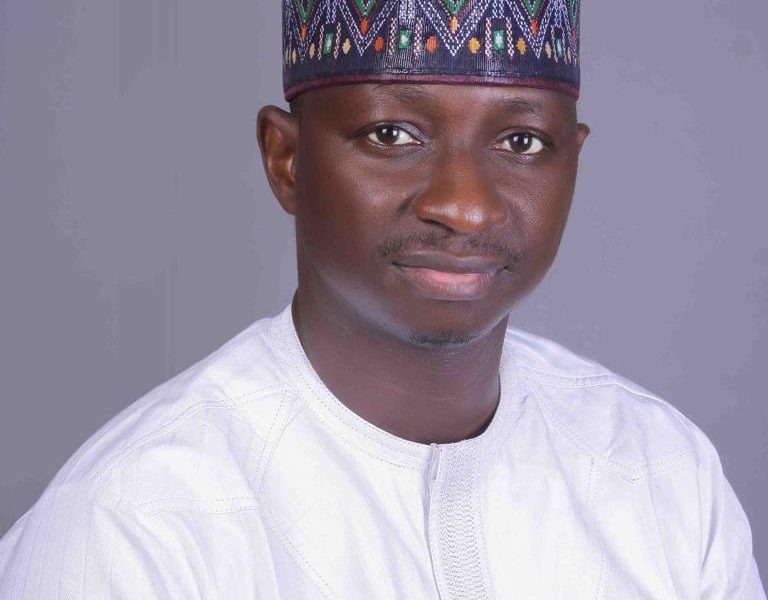 EventApril 20, 2025Easter: Ajia Felicitates Christians, Calls for Prayers, Unity and National Rebirth
EventApril 20, 2025Easter: Ajia Felicitates Christians, Calls for Prayers, Unity and National Rebirth NewsApril 7, 2025What NLM National Leader, ThisDaysMoses Tells Followers On Birthday Anniversary, Full Text
NewsApril 7, 2025What NLM National Leader, ThisDaysMoses Tells Followers On Birthday Anniversary, Full Text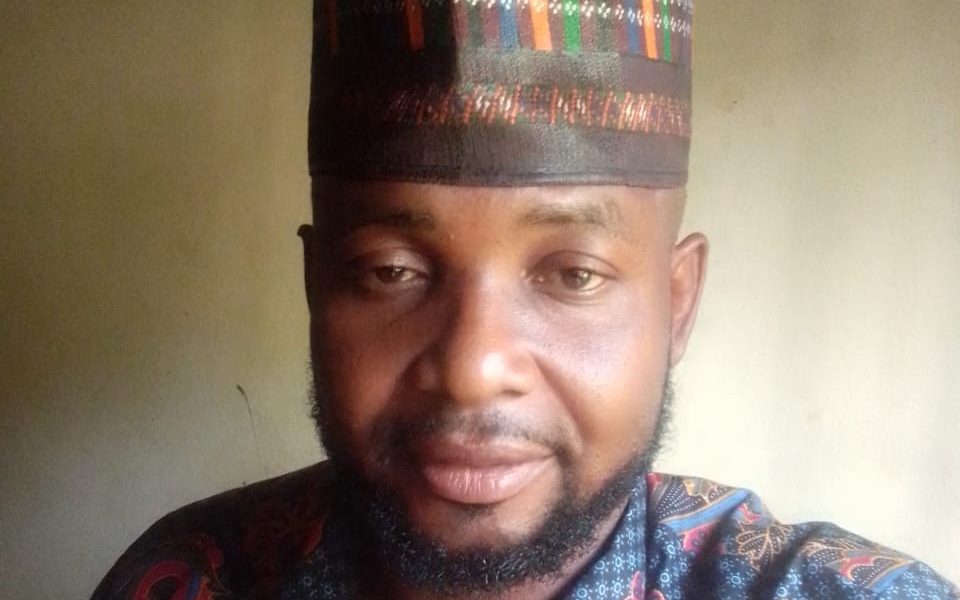 ReligiousMarch 30, 2025ICDA Chaiman, Ahmed Usman Felicitates with Igalas On the Occasion of Ide-l- Fitri
ReligiousMarch 30, 2025ICDA Chaiman, Ahmed Usman Felicitates with Igalas On the Occasion of Ide-l- Fitri NewsMarch 28, 2025Upscaling Organic, Agroecology practices key to healthy living – Experts
NewsMarch 28, 2025Upscaling Organic, Agroecology practices key to healthy living – Experts
Religious
ICDA Chaiman, Ahmed Usman Felicitates with Igalas On the Occasion of Ide-l- Fitri

By Abdulrahman Obaje
The Chairman, Igala Cultural and Development Association, ICDA, Federal Capital Territory and Surrounding Towns, FCT & S, Alhaji Ahmed
Usman has felicitates with the Igala Muslim community in the FCT & S, Kogi State, and Nigeria as a whole on the occasion of Ide-l-fitri Celebration.
js">
The message which is contained in a press release by the Director Media of ICDA, FCT & S, Prince Abdulrahman Obaje in Abuja further said, Ramadan is a time of sober reflection, spiritual rejuvenation and social cohesion.
Usman also said the month of Ramadan is a very significant month for the Muslim ummah all over the world as it afford the Muslims the opportunity to be closer to their creator, and sober reflection on life.
He said, “I congratulate the entire Muslim ummah on the occasion of Idl fitri celebration, especially the Igala community of FCT & S, Kogi state and Nigeria as a whole”
“May the significance of the holy month of Ramadan continue to abide by you, your loved ones and your entire households”
“I implore you to continue to live a fulfilling life according to the teachings of the holy prophet Muhammed”.
“I also call on the general populace to continue to live in peace and cohesion for a better society”, the statement further revealed.
Ide-l fitri is an Islamic festival celebrated to mark the end of 29 days or 30 days fasting.
Author Profile

- Prince Abdulrahman Obaje is a Media, Information and Computer Technology Consultant. A quintessential Journalist, online marketer, social media strategist, Mathematician and Computer Scientist is based in Abuja, Nigeria. He is the Founder and the Publisher of The Informavores!. You can reach me on +234 805 939 5252 or send i-witness report directly to me on news@informavores.com.ng.
Latest entries
 EventApril 20, 2025Easter: Ajia Felicitates Christians, Calls for Prayers, Unity and National Rebirth
EventApril 20, 2025Easter: Ajia Felicitates Christians, Calls for Prayers, Unity and National Rebirth NewsApril 7, 2025What NLM National Leader, ThisDaysMoses Tells Followers On Birthday Anniversary, Full Text
NewsApril 7, 2025What NLM National Leader, ThisDaysMoses Tells Followers On Birthday Anniversary, Full Text ReligiousMarch 30, 2025ICDA Chaiman, Ahmed Usman Felicitates with Igalas On the Occasion of Ide-l- Fitri
ReligiousMarch 30, 2025ICDA Chaiman, Ahmed Usman Felicitates with Igalas On the Occasion of Ide-l- Fitri NewsMarch 28, 2025Upscaling Organic, Agroecology practices key to healthy living – Experts
NewsMarch 28, 2025Upscaling Organic, Agroecology practices key to healthy living – Experts
Opinion
Religious Freedom in Nigeria: Beyond Religious Elites and Political Agendas

By Felix Samari, Abuja
In recent years, the issue of religious freedom in Nigeria has gained international attention, often prompting foreign governments—especially the United States—to evaluate the country’s status regarding Freedom of Religion or Belief (FoRB).
adsbygoogle || []).push({});
googlesyndication.com/pagead/js/adsbygoogle.js">
Religious freedom violations in Nigeria occur in various forms, some deliberate and others unintentional. Often, individuals or institutions engage in discrimination without recognizing it as a violation of fundamental rights.
For instance, a highly qualified teacher may be denied employment at a school because their faith differs from that of the institution’s majority. Such a decision may stem from an ingrained fear that an outsider’s beliefs could influence students, even when the candidate’s professional competence is unquestionable.
Beyond such workplace discrimination, there is a broader climate of religious unwelcomeness that permeates various aspects of Nigerian society. Religious minorities frequently find themselves excluded from key social and economic opportunities. However, these realities are rarely the focus of discussions led by Christian and Muslim religious leaders, who dominate the FoRB discourse both locally and internationally.
It is often claimed that Nigeria is on the brink of religious domination—either by Islamization or Christian evangelization. Such claims, however, fail to acknowledge the competitive nature of religious influence in the country. Both Islam and Christianity wield significant power and enjoy government-backed privileges, including state-funded pilgrimages, the allocation of land for places of worship, and religious programs on public media.
While Christians express concerns about a supposed agenda to “Islamize” Nigeria, Christian evangelism aggressively extends to every corner of the country. Churches, billboards, and loudspeakers amplify Christian messages in predominantly Muslim areas, just as Islamic preachers do the same in Christian-majority zones. Meanwhile, smaller religious groups—such as traditional worshippers or atheists—struggle for recognition and protection under the same legal and social frameworks.
One of the most glaring issues with how the international community addresses religious freedom in Nigeria is its reliance on the perspectives of religious elites. Western policymakers often engage with well-established church leaders or Islamic clerics who frame their communities as perpetual victims. This narrow approach overlooks the diverse experiences of everyday Nigerians who face religious discrimination without the backing of powerful institutions.
Consider the recent case in Sokoto State, where gunmen abducted worshippers from a mosque. Had this been a church, international media would have reacted with much greater urgency. This discrepancy highlights the selective attention given to certain religious groups while ignoring the broader security and humanitarian crises affecting all Nigerians, regardless of faith.
Religious conversion is a right. People are free to become Christians, Muslims, or follow any other belief system. However, the failure of religious leaders in Nigeria goes beyond conversion battles. Instead of using their influence to promote unity and development, many have fueled division, fostering distrust among religious groups.
While religion remains a central force in Nigerian society, it should not overshadow more pressing national concerns. Economic instability, poor governance, and security challenges affect Nigerians across religious lines. Yet, these systemic issues receive far less attention than religious grievances in public discourse.
If the United States and other international bodies genuinely want to address religious freedom violations in Nigeria, they must go beyond consulting religious elites. A more comprehensive approach should involve direct engagement with affected communities, independent investigations, and objective assessments of FoRB violations. No single religious group possesses the power or resources to impose a national faith on Nigeria’s diverse population of over 220 million people.
It is time for global actors to recognize that Nigeria’s challenges extend beyond religious identity. By shifting their focus to structural injustices, economic inequalities, and governance failures, they will better understand the true obstacles to religious freedom—and, more importantly, contribute to lasting solutions.
*Samari, a FoRB trainer based in Abuja, Nigeria, coordinates media projects focused on Freedom of Religion or Belief.*
Author Profile

- Prince Abdulrahman Obaje is a Media, Information and Computer Technology Consultant. A quintessential Journalist, online marketer, social media strategist, Mathematician and Computer Scientist is based in Abuja, Nigeria. He is the Founder and the Publisher of The Informavores!. You can reach me on +234 805 939 5252 or send i-witness report directly to me on news@informavores.com.ng.
Latest entries
 EventApril 20, 2025Easter: Ajia Felicitates Christians, Calls for Prayers, Unity and National Rebirth
EventApril 20, 2025Easter: Ajia Felicitates Christians, Calls for Prayers, Unity and National Rebirth NewsApril 7, 2025What NLM National Leader, ThisDaysMoses Tells Followers On Birthday Anniversary, Full Text
NewsApril 7, 2025What NLM National Leader, ThisDaysMoses Tells Followers On Birthday Anniversary, Full Text ReligiousMarch 30, 2025ICDA Chaiman, Ahmed Usman Felicitates with Igalas On the Occasion of Ide-l- Fitri
ReligiousMarch 30, 2025ICDA Chaiman, Ahmed Usman Felicitates with Igalas On the Occasion of Ide-l- Fitri NewsMarch 28, 2025Upscaling Organic, Agroecology practices key to healthy living – Experts
NewsMarch 28, 2025Upscaling Organic, Agroecology practices key to healthy living – Experts
Religious
From Charity to Self-Reliance: Ashraaf Islamic Foundation’s Fight Against Food Insecurity

By Abdulrahman Aliagan, Abuja
In a world where food insecurity remains a pressing challenge, organizations like the Ashraaf Islamic Foundation are making tangible efforts to address the issue through empowerment and strategic advocacy.
adsbygoogle || []).push({});
js">
The event, a five-in-one gathering, combined a Ramadan lecture, national prayers, empowerment programs, training sessions, and an exhibition aimed at addressing food security while uplifting widows, persons with disabilities (PWDs), unemployed youth, and the Almajiri community.
The Founder and Chairman of the Foundation, Imam (Dr.) Sharafudeen Abdulsalam Aliagan, emphasized that empowerment is more than just financial aid; it is about providing people with the means to sustain themselves.
“We are going to empower four categories of people in this hall today,” Aliagan announced.
“The widows will be trained and empowered. When you train somebody, you are directly empowering them. So, we’re going to train and empower widows. We’ll empower Almajiris. We are going to train and empower as much as possible. We are going to train and empower people with disabilities and young unemployed Nigerians. We pray that Allah will make this happen more than the way we expected.”
Aliagan reiterated that self-reliance is key to reducing poverty and food insecurity, urging Nigerians to embrace modern agricultural practices, particularly smart agriculture, to ensure sustainable food production.
The Chairman of the occasion, Malam Lanre Issa-Onilu, the Director-General of the National Orientation Agency (NOA), represented by Deputy Director Audu Ayuba Mayo, underscored the importance of food security in national development.
“Food security is not just an economic or agricultural concern; it is a fundamental aspect of national development and social stability. A well-nourished society is a productive one, and ensuring access to affordable, nutritious food is essential for national growth and peace,” he stated.
He called on government agencies, religious institutions, private organizations, and individuals to contribute toward ensuring food sufficiency by supporting local farmers, reducing food waste, and adopting responsible consumption habits.
The NOA, according to Issa-Onilu, remains committed to mobilizing Nigerians towards behavioral change and policies that protect the most vulnerable.
“As we reflect during this holy month, let us renew our commitment to building a nation where no one is left behind,” he concluded.
Representing the Inspector General of Police (IGP), Kayode Egbetokun, CSP Faruk U. Dange called for youth engagement in agriculture to prevent crime and idleness.
“An idle mind is the devil’s workshop. If the youth are engaged in productive activities like agriculture, they will have no time for crime. We must involve them in food production while also ensuring their safety,” he said.
Dange encouraged Nigerians to collaborate with security agencies by providing timely information to combat crime, adding that prayers and moral support for officers working to maintain law and order were also necessary.
A retired director of the Federal Ministry of Agriculture and Rural Development, Dr. Oyeleke Rasaq, emphasized the need for Nigerians to grow their own food, citing small-scale agricultural initiatives such as snail farming as viable ways to enhance food security without significant financial investment.
Aliagan reinforced this sentiment, noting that even small agricultural efforts can collectively have a significant impact on food security:
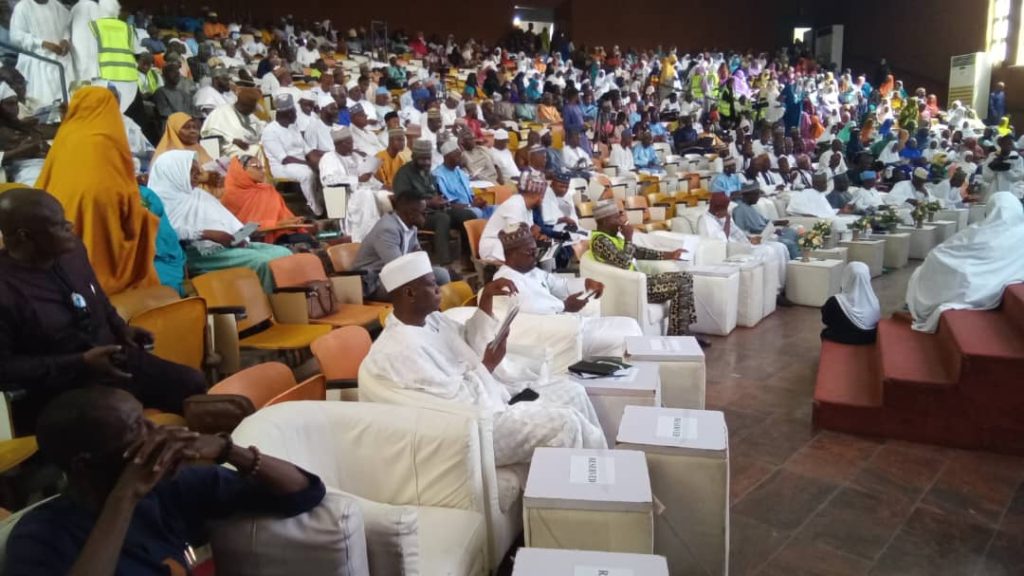
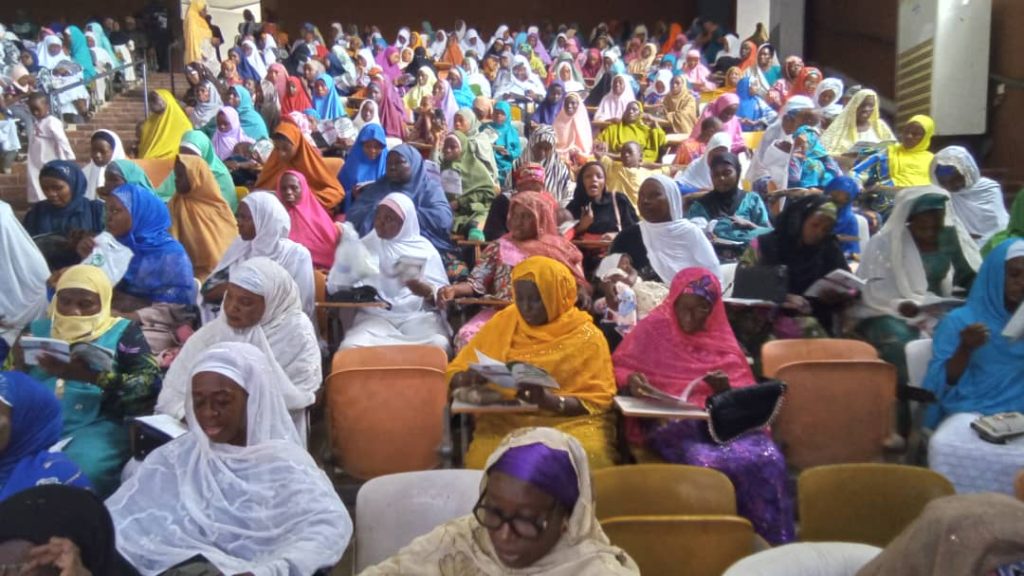 “The solution is for each and every one of us to learn how to farm on our own without serious capital. You can do farming in your respective homes. You can do what we call snail farming and others,” he advised.
“The solution is for each and every one of us to learn how to farm on our own without serious capital. You can do farming in your respective homes. You can do what we call snail farming and others,” he advised.
He further appealed to non-governmental organizations (NGOs), private individuals, and the government to invest in agricultural empowerment programs that promote self-reliance and reduce dependency.
Speaking at the event, Senator Saliu Mustapha, Chairman of the Senate Committee on Agriculture and Food Security, represented by Mr. Salman Salman, commended the Foundation for selecting a timely and crucial topic. He stressed the importance of food security, not only during Ramadan but throughout the year.
“Now that food security has become an issue the world over, it is essential that we put our acts together to ensure that we provide for those who are less privileged,” Mustapha stated.
He echoed President Bola Ahmed Tinubu’s stance on producing what we eat and eating what we produce, advocating for increased investment in local food production.
As the event progressed, attendees had the opportunity to participate in an ongoing exhibition showcasing agricultural products and innovations. Vendors and farmers engaged in buying and selling activities, reinforcing the importance of practical agricultural engagement in achieving food security.
Dr. Aliagan made an impassioned appeal to wealthy individuals and corporate organizations to contribute to empowering more Nigerians in sustainable agriculture, emphasizing that “the more they give, the more they are expected to give.”
With prayers for national peace, economic prosperity, and food sufficiency, the event ended on a hopeful note, inspiring attendees to take practical steps toward self-reliance and community support.
The Ashraaf Islamic Foundation’s 8th Annual Ramadan Lecture exemplified the essence of Ramadan—compassion, sacrifice, and communal responsibility. However, beyond charity, the Foundation’s approach underscores the importance of empowerment, education, and strategic policy engagement in addressing food insecurity and economic challenges in Nigeria.
As the country grapples with rising food prices, unemployment, and security concerns, initiatives like these serve as a blueprint for a self-sufficient and economically stable Nigeria—one where every individual has the means to feed themselves and contribute meaningfully to society.
Author Profile

- Prince Abdulrahman Obaje is a Media, Information and Computer Technology Consultant. A quintessential Journalist, online marketer, social media strategist, Mathematician and Computer Scientist is based in Abuja, Nigeria. He is the Founder and the Publisher of The Informavores!. You can reach me on +234 805 939 5252 or send i-witness report directly to me on news@informavores.com.ng.
Latest entries
 EventApril 20, 2025Easter: Ajia Felicitates Christians, Calls for Prayers, Unity and National Rebirth
EventApril 20, 2025Easter: Ajia Felicitates Christians, Calls for Prayers, Unity and National Rebirth NewsApril 7, 2025What NLM National Leader, ThisDaysMoses Tells Followers On Birthday Anniversary, Full Text
NewsApril 7, 2025What NLM National Leader, ThisDaysMoses Tells Followers On Birthday Anniversary, Full Text ReligiousMarch 30, 2025ICDA Chaiman, Ahmed Usman Felicitates with Igalas On the Occasion of Ide-l- Fitri
ReligiousMarch 30, 2025ICDA Chaiman, Ahmed Usman Felicitates with Igalas On the Occasion of Ide-l- Fitri NewsMarch 28, 2025Upscaling Organic, Agroecology practices key to healthy living – Experts
NewsMarch 28, 2025Upscaling Organic, Agroecology practices key to healthy living – Experts


 Arabic
Arabic Chinese (Simplified)
Chinese (Simplified) Dutch
Dutch English
English Filipino
Filipino French
French German
German Hausa
Hausa Igbo
Igbo Italian
Italian Latin
Latin Portuguese
Portuguese Russian
Russian Spanish
Spanish Swedish
Swedish Turkish
Turkish Yoruba
Yoruba Zulu
Zulu